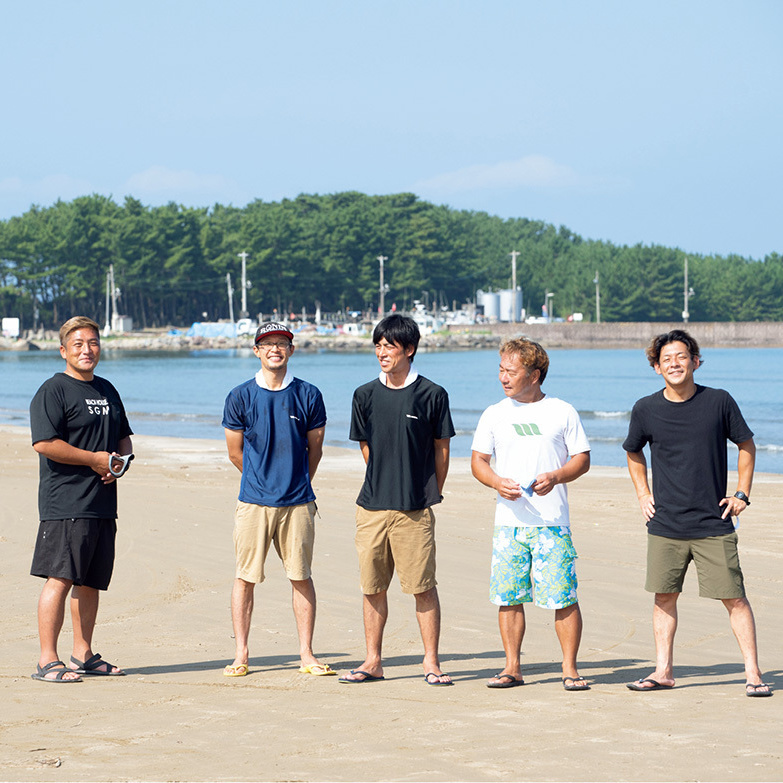Randy Bass, an American baseball player from Oklahoma, became a legend of Japanese baseball two years after first arriving in 1983. What was the secret behind his success?

Randy Bass at the plate at Koshien Stadium, the home of the Hanshin Tigers, in 1987.
To Randy Bass, who had played professional baseball as an infielder for 11 years in the United States, Japan was an unfamiliar country when he first came here. Even so, he said that his transition to the world of professional Japanese baseball “was the best decision [he] ever made.” That decision was, at the same time, one that would produce a legendary American slugger who is still idolized in Japan today.
Bass joined the Hanshin Tigers, one of the most popular professional Japanese baseball clubs, based in Nishinomiya, Hyogo Prefecture, in 1983. Two years later, he posted a .350 batting average, bashed 54 home runs, and drove in 134 RBIs to win the Triple Crown, leading the Tigers to their first (and so far only) Japan Series championship in franchise history. Bass would go on to take the Triple Crown again the next year, when he blasted home runs in seven straight games, and his .389 batting average (in 1986) set a single-season record in Japanese baseball that still stands today.
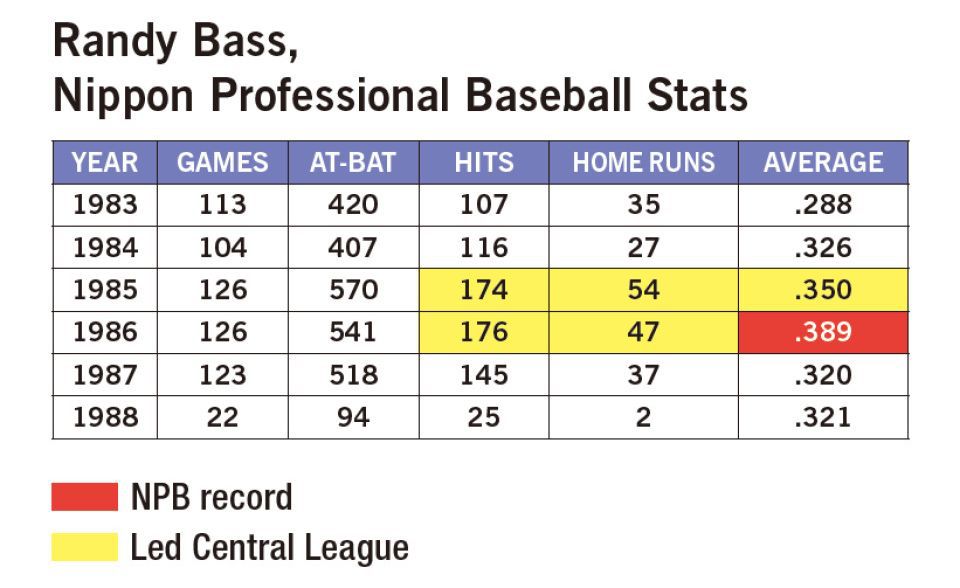
Despite those feats, his career in Japanese baseball got off to a rocky start, as he recorded no hits in his first 15 at-bats. Adapting to the Japanese style of baseball was a struggle, as Japanese pitchers would throw a breaking ball (a pitch that does not travel straight) in counts when an American pitcher would typically hurl a fastball (power pitching). Bass said, “Getting used to that... took about a half season for me.” He was a left-handed power hitter who would generally pull the ball to right field, but he had a hard time hitting the opposite way—an approach better suited to hitting breaking balls. Nevertheless, with a dedicated effort from the coaches teaching him, he gradually overcame that obstacle. For that, he is grateful, saying: “I became a dangerous hitter then. I owe all that to the Japanese coaching staff.”
The setting where Randy Bass lived, in Kobe, Hyogo Prefecture, also influenced his play. Enclosed by the sea and mountains, the city has long prospered as an international trade hub, with a large population of foreign-born residents. It also has a rich culinary culture, which means that diners can find whatever they are looking for. Bass took a particular liking to ramen and teppanyaki (cooking on an iron griddle). He “fell in love” with noodle dishes of many flavors, including those with soy sauce or miso broth. His regular restaurant, which served teppanyaki of Kobe beef, shrimp, and chicken, prepared right at the table, was the “greatest place ever,” in his words. Kobe also has international schools where children can learn in English. Bass remembers that “it was just like being in Oklahoma.”

Kobe, where Bass lived, is a port city with an international flair.
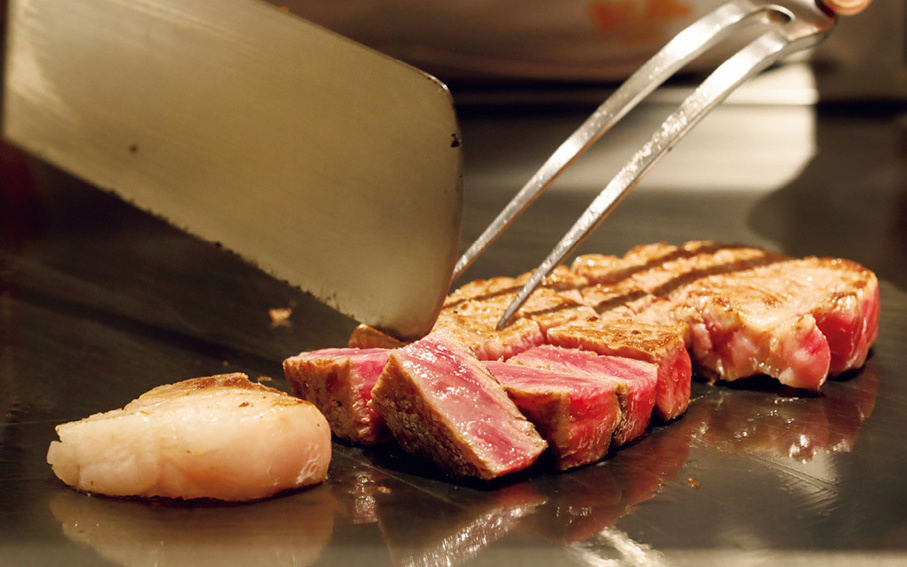
Kobe is home to numerous restaurants serving world-famous Kobe beef.
He easily got along with his Hanshin Tigers teammates by absorbing Japanese culture. In between practices, Bass took an interest in playing shogi, a boardgame similar to chess, which was popular among his fellow ballplayers at the time. The best shogi player on the team taught Bass the rules and strategy. Shogi was played nearly every day between practices, and during that time, Bass eventually became good enough to defeat some of his Japanese teammates. “They didn’t like to have an American beat them,” he says, with a good-humored smile.
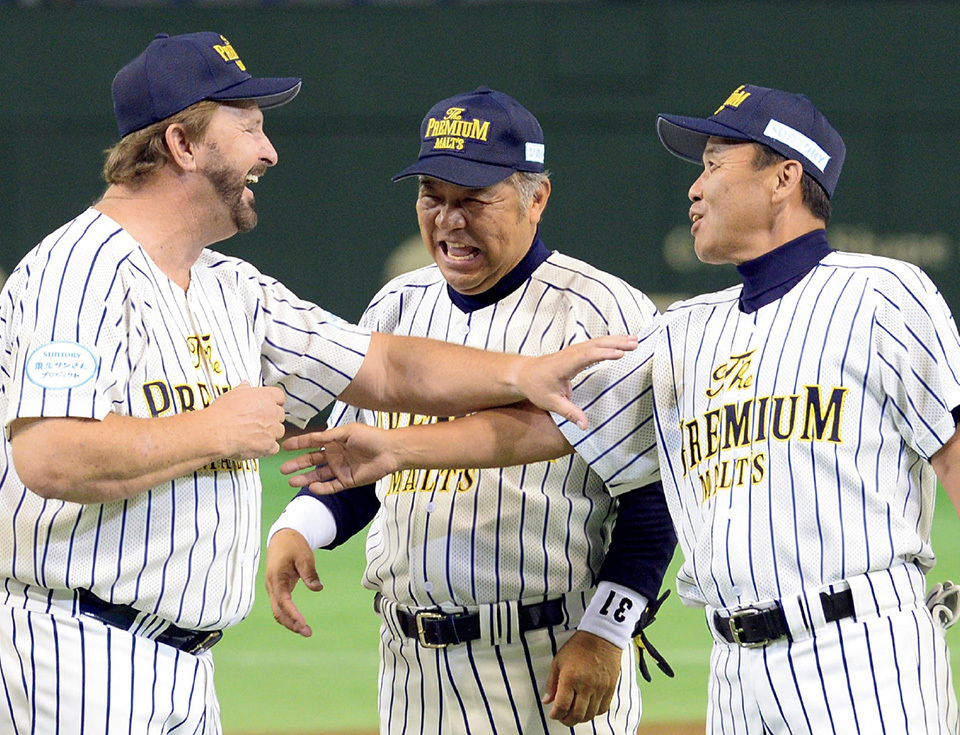
Long after hanging up their spikes, former Hanshin Tigers teammates still get together.
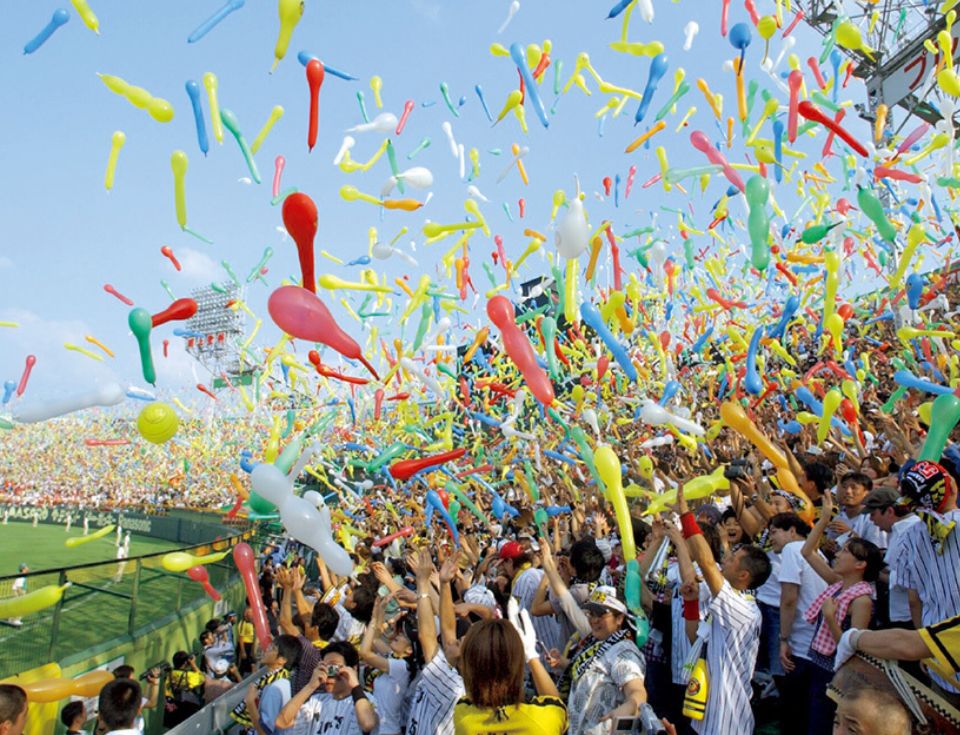
Fans send colorful balloons flying into the air at Koshien Stadium to cheer on the ballplayers.
Bass was also encouraged by the passionate way Japanese fans cheer on their teams, which is completely unlike that of American crowds. When it is time to play ball at the Tigers’ home at Koshien Stadium, music from trumpets and drums kicks up and the crowd breaks out in unison, singing songs to encourage their beloved team. As Bass recalls, he always responded well to the fans’ support. “The fans were outstanding. Good or bad, it didn’t matter, they were there.”
Until he left the Tigers in 1988, Bass, supported by the people around him and the city where he lived, was a dynamic hitter who mesmerized his fans. Even today, more than 30 years later, many still have vivid memories of the slugger.
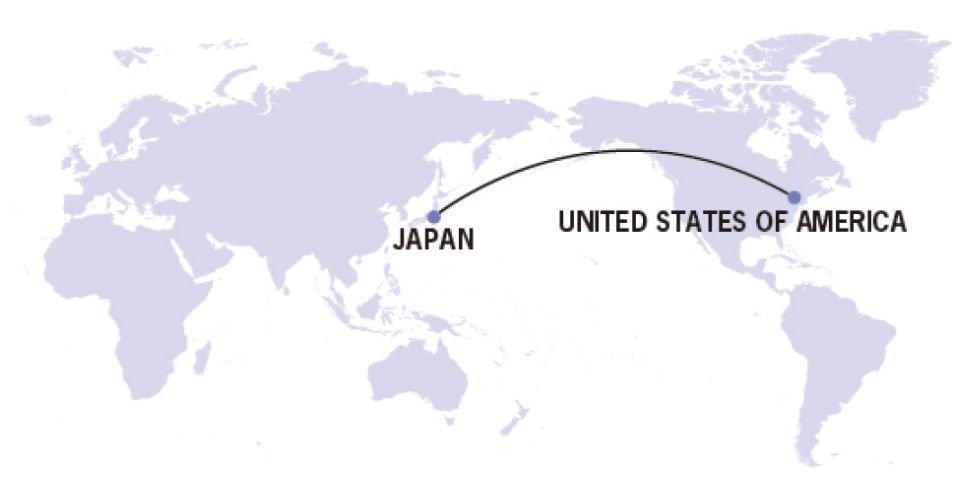
Randy Bass
Born in Oklahoma in 1954. A sports enthusiast since he began playing baseball at a young age. Drafted by the Minnesota Twins in 1972. Later played for other MLB clubs, including the Kansas City Royals and Texas Rangers, before coming to Japan in 1983, where he joined the Hanshin Tigers. With a powerful swing and excellent bat control, his success at the plate helped lead the Tigers to their first Japan Series championship in 1985. After leaving the Tigers and returning to America in 1988, Bass ran a farm in Oklahoma. In 2004, he began a 15-year stint as a Democratic state senator, which ended last year.






























